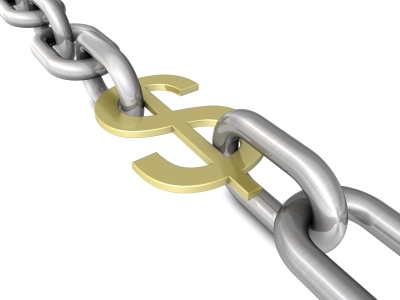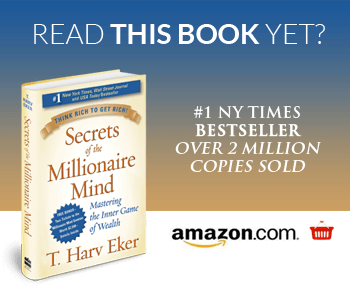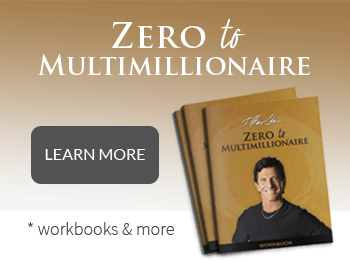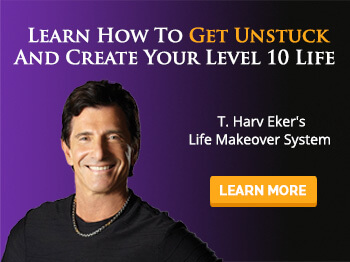How long does it take to get to where you want to be?
The answer for most people is ‘Too long!’ In our culture of instant gratification, the likelihood that it can take years to become a millionaire is enough to keep most from ever trying.
The truth is few businesses make money in the first four years. In fact the average business takes two years to lose money, two more years to pay back the money it lost, and three more years to become profitable. In other words, it typically takes seven years for a business to succeed.
For a lot of people that’s way too long, but for most fields of study, work, or career, it takes about seven years to become a master. Seven years seems like a long time, and in some ways it is, but in seven years how much older will you be regardless?
One of the prime rules for success also happens to be one of the hardest to swallow. I choked on it for a while, maybe because it’s so painfully obvious and avoidable: that time is going to pass anyway. Seven years from now, seven years will have gone by. Three years from now three years will have gone by, so whatever you know you’re supposed to be doing anyway, get on with it!
Put your head down, pull out every stop, and pay any price you can to get into the top 10% in your field. Then you’ll remain one of the highest paid people in your field for the rest of your life.
But here’s another important point to remember: the pay-off is not when you get to your goal. If you think that’s the case, you are setting yourself up for some serious disappointment. You only get to a goal once, yes, then what? Then the next, and the next, and then your head is always looking ahead instead of where you’re at right now.
The pay-off is every step of along the way. Every step you take toward becoming better, you feel yourself improving. It raises your self esteem. It releases endorphins in your brain which make you happy. Every step you take toward the goal makes you happy and gives you energy. It’s people who are not moving in the direction of becoming better who are negative, unhappy, miserable complainers.
We constantly have to work on ourselves. Your life only gets better when you get better, and there’s no limit to how much better you can become. Conversely, it’s your weakest skill that is holding you back. Your weakest key skill in your field sets the height of your income.
Time is on your side, and it’s not. Time, in reality, doesn’t really care what you do or don’t do. It’s going to keep moving (or not “moving,” depending on how Zen you want to get here!) regardless of whether or not you get up and stop wasting it, or stop pushing things off, or stop making excuses. Time can be your friend or ally, but never your enemy. The real enemy is usually within.
What one skill—if you developed a mastery of it—would help you the most to increase your income? What would help you the most in terms of learning a skill within your career or business right now?
That’s got to sound ironic coming from someone who believes whole-heartedly in the benefits of being rich. Forget about getting out of debt, paying bills, buying nice things, etc. That stuff’s great, but at the end of it all you’re not going to give a damn about your credit rating. Money’s the last thing on your mind in that moment, I would imagine.
Money can reduce the stress of living, but it can bring just as much if not more anxiety. I’ve gone through my cycles of accumulating and losing money, getting more and losing it again. The money wasn’t burning a hole in my pocket. I just had a big hole in my pocket and didn’t bother to sew it up. That hole represented something in my mental blueprint that kept me from being stable with money. There was nothing wrong with the money.
On the other hand, people without money often think if they just had enough to do this or that, then things would be better. While that may be true, what happens when the mind goes into ‘Only if …’ consistently? That’s exactly what you get … ‘only if.’
‘This will only happen if…’
All of a sudden nothing’s happening and you don’t even know or remember that rule you created. In business that thinking often translates into “It takes money to make money.” No! If you have money it can certainly grow more money, but it doesn’t take money to make money. It takes creativity to make money.
Throwing money at a problem is disaster! In business there’s no such thing as a money problem. That problem grew out of somewhere else. You want to fix the root of the problem. If you throw money at a business problem, you’ll have the same business problem for the rest of your life and no money. Creativity and knowledge are the answers, not money.
It’s also not logical to blame money for people’s shortcomings, or the world’s for that matter. Obviously there are people that are rich and greedy, but there are poor people who are greedy and there are middle class people who are greedy. There are rich, poor, and middle-class people who are generous. There are rich, poor and average income people who can be both generous and greedy, depending on the stress they’re going through at any given time.
To say rich people are greedy as a blanket statement is just as unfair as saying poor people are lazy. I’ve met many a hard-working poor person who just hadn’t yet turned the corner on working smarter instead of just harder.
Money can’t be the root of all evil. Envy, jealousy, and greed—all based on fear of not having or getting enough of something we want—pre-dated currency (think about the story of Cain and Able). It’s a part of what it means for us to be human.
If money isn’t the cause of all that’s wrong, it’s not going to be the cure either. It’s not the answer. It’s the fruit of our expansion—or lack thereof—beyond ourselves and of the impact we’re having on the world. What we choose to do with that is a result of who we choose to be, not because of money.
With so much turmoil going on in the world today, sometimes it can seem too selfish to think about personal riches while so many struggle for basics. This is a feeling I experienced periodically throughout my life—that flip-flop between getting rich as an unqualified goal and wanting to get rid of it all and retreat to a temple or something, or otherwise reject the idea of staying rich.
I’ve made it and lost it. I went from being rich to ‘money is not the most important thing in life’ and ‘why would you put that much focus on it?’ Honestly, I used to think this was a curse. It’s like I had this split personality where one side was about being an entrepreneur and focusing on finances. But I had this other part of me that just wanted to be at the monastery, meditate and eat in silence.
It took me years to figure out that neither extreme was really me. Sometimes it takes success to understand success in itself is not enough. I had to win and lose, tune out and turn on in order to learn that when you reach your first big goal, joyousness, gratitude, and satisfaction don’t just automatically jump on for the ride.
There has to be an intention for these intangibles, and that means knowing what makes you joyous, grateful and satisfied—where money has nothing to do with it. The money only takes it to a whole other level. So discovering these things about yourself certainly does require asking yourself quality questions—or in my world, that and some soul searching.
There’s an eloquent balance between wealth and spirituality that I can now fully embrace, as should we all. For the spiritual-minded in a world of such disparity, consider yourself blessed to have an interest in that and in financial success. Be the fortunate one to put the two together and help other people know that they can be rich and spiritual too. You can be rich and a good person with intentions that consider others.
If spirituality doesn’t ring true for you, throw that out the window anyways. Both riches at any costs and “money doesn’t matter” are two extremes that simply don’t work. They didn’t work for me, and I can’t think of anyone I know who can survive either over the long haul. Intend to split the difference. Balance is beautiful.
Now I look at my duality as a blessing, thanking my stars for the successes and failures, those swings from hermit to world conqueror. You can have your goals, and when you achieve them acknowledge yourself and be thrilled, but there better be something else bringing you joy in your life, or you can end up psyching yourself out of success.
Bank riches without inner riches is a bank account waiting to see itself dwindle, because you’ll look for other ways to use that money to fill a hole that it can never fill—even if that means consciously or unconsciously getting rid of it.
Do you have any stories of having a bunch only to lose it willfully? What was it that finally made you realize the money wasn’t enough, and what did you do to get that sense of real satisfaction? What was the particular lesson you can share with the rest of the Millionaire Mind community? We want to hear from you!
I believe we are spiritual beings living physical lives, and to make the most of this life we have to take care of, nurture, and more importantly listen to the clues that spirit gives us, mostly through gut intuition and feelings we have.
At some point, though, we have to honor the physical side of our lives as well, and that means taking action. To hell if conditions aren’t perfect, or if this circumstance isn’t quite ideal or that person isn’t following through the way they said they would. We’ve got to take all these spiritual principles and put them into action.
That’s exactly where a lot of people get stuck, even those with greater awareness and knowledge. You know you want to work out, need to get into better shape for the sake of generating more energy to work your mission. But what step is often the hardest to take? That first one.
Depending how long you had been in your last cycle, getting the ball rolling can feel like pushing a boulder uphill, metaphorically speaking. You need to build the next muscle and final spiritual muscle that separates the successful from those still waiting at the gate: momentum.
Momentum is that force that makes it easier for someone who’s successful to do what’s right than to do what’s wrong. Momentum is that process of getting that snowball moving. The hardest part about working out is getting to the gym. Once you get there, it’s not that hard to do.
When you’re in motion, that’s when things begin to line up, not before (that goes for you perfectionist!). When in doubt, act. What did everyone else tell you? When in doubt, stop and think about it. No! That’s why I say thinking is dangerous to your wealth!
Most people who I know that got rich didn’t think too much. They saw a piece of property: ‘This looks good. Anything structurally wrong? Environmentally? No? Good, I’ll buy it.’ Twenty years later they’re very rich. They really planned that one out, huh?
Just as an aside, if you’re really “smart,” chances are you’re not going to be really rich. You’re going to get in your way, a real momentum killer. Those who aren’t too “smart” are open to knowing (A) They don’t know everything the need to know to be rich (B) Will learn how to be rich, even if it temporarily hurt’s their pride to know exactly how far off they were to begin with.
A body in motion will remain in motion and a body at rest will remain at rest. What do we want to do? Get into motion! Once you’re there, it gets easier. We already know that. Now we gotta just do it.
What in your life do you just need to get started and adjust as you go? What have you been waiting for? What’s the fear? Is that true or did you just make it up?
You will make it. Trust yourself. Love yourself and know that you make it all up. It’s your freaking story!
Now we want to hear from you! What are some positive momentum-changers that have worked for you?
https://bit.ly/NewMMI
When you’re my age and you bring up entertainers who have been doing their thing for decades, you run the risk of dating yourself. But I think it’s safe to say even younger people are familiar with the late comedian George Carlin. He and a Pacifica radio station single-handedly changed Federal Communication Commission policies by letting us know what the seven filthiest words are in the English language.
There is no beating the comic genius of Carlin, but I can take a different track and offer some of the best words we can use to communicate powerfully and effectively, especially when you’re trying to influence someone positively.
These are things that we sort of already know intuitively: when engaging in conversation with friends or strangers alike, you want them to feel like you know where they’re coming from, even if you disagree with them. You want them to feel understood.
Hence, two of the four best words we can use when communicating: I understand.
If you can get into the habit of responding to every communication with the first two words being ‘I understand,’ generally you will disarm 80% of any negative or resistant energy right there and then. Even if you don’t understand, you say, “Can you clarify that for me just a little bit more?” It’s all about listening, yes? Make them feel heard and understood. Once you’re past that stage, work on the convincing part next.
What else have we instinctively learned about what to say? Well, what don’t you want to say after you’ve repeated back what the other person said yet you don’t agree with it? The dreaded ‘but.’ What usually happens when you say, “Yeah, I see what you’re saying, but …” You know. The other person gets that impatient or irritated look, like you just negated everything they were talking about even though you almost had them convinced that you knew where they were coming from.
The answer is as simple as replacing ‘but’ with ‘and.’ “Yeah, I hear what you’re saying, and here’s something else I was thinking about in addition to that.” It’s as easy as that.
Now what’s that last ‘nice’ word? It’s something that helps us identify with others while still also distinguishing our point of view, without making the other person feel like they’re being distinguished away from you. So instead of saying, “You have a ways to go,” you say ‘we.’
“You know, sometimes we as people have a tendency to make snap judgments even though we don’t have all the facts just yet.” That’s a nice way of telling someone they’re being short-sighted or pig-headed without making them feel bad about it. That’s a great tool in leadership or for anyone who displays openness to being educated.
The beauty of this exercise is that you don’t have to take mine or anyone’s word for it. Experiment with these four words consciously for the next week or so. Notice any differences in how people in your life react to you? Are you able to bring your perspective to others more effectively, or outright convince other people toward your point of view? Can’t wait to hear how it goes for you!
Uncertainty is something most people avoid like the plague. There’s nothing like comfort in knowing we have a place to lay our heads every night, knowing we have things to do, food to eat, materials we need for the basics of a decent life.
If we’re honest, we know that we also need a little mystery, surprise, uncertainty. There’s a thrill to that. The thing is sometimes it comes in forms that we weren’t expecting, and instead of embracing uncertainty, we fight against it. ‘This isn’t what I was expecting! This isn’t the way things are supposed to be!’
And instead of staying in flow, we stay stuck while the universe may very well had intended for us to roll with the change; having faith in ourselves and in life. There is wisdom in embracing uncertainty.
Understanding this, we also come to realize the goals we move toward are rarely going to occur in a straight line from A to B to C. That’s completely unnatural in the universe. It’s literally impossible.
Wealth, money, relationships; success in any arena in the real world happens in a zigzag. You have to expect to constantly correct yourself. Constantly! And when you do that you will eventually land your success. The only time you won’t land is if upon making ‘mistakes’ or thinking yourself a ‘failure’ you give up or you don’t learn anything.’
It’s hubris for anyone to think they’re like a genius and you’ll get it right every time. Maybe you won’t. We have our experience to help us, though, and our desire to learn and become more of what we want, open to the guidance and wisdom of those who have already gone down those paths.
If you’re a perfectionist, give it up. It’s pointless. Mistakes, corrections, mistakes, corrections! That’s the way it is. Mistakes are the natural ways we learn.
What happens to babies when they first learn to walk? They fall! And what would happen if they didn’t learn from those mistakes? They would just stay down there! But they don’t know that yet. Nobody taught them “failure.” Quite the opposite they tend to get encouragement. So they just get up and try it again. Pretty soon, they’ll resent you trying to help them; that’s how confident they become in themselves.
If they were an adult, though, here’s what would happen. They would fall, stay down there, and get real comfortable. ‘Oh, God I don’t even deserve to walk! It must not be meant to be! I should just lie there.’ We justify it or we blame. ‘Mom never taught me right! It’s her fault!’
Imagine how less insecure we become when we get comfortable making mistakes, confident enough in ourselves to say, “That’s okay, because I’m going to get it right next time.” And maybe we won’t! It’s still okay, because the confidence runs so deep it doesn’t matter how many times it takes. You know you’re going to nail it and be happy all the while because you’re implementing this practice into all facets of life, from relationships to business.
What’s your zigzag story? Have you reached a cherished goal by means you never imagined yet you arrived at the destination anyway? There are stories grand and ordinary that shed light on the power of universal correction. We want to hear yours!
 Last week we took a look at loving what you do for a living as a means to getting rich. Unless you’re passionate about what you do, it is very difficult for you to be successful or happy.
Last week we took a look at loving what you do for a living as a means to getting rich. Unless you’re passionate about what you do, it is very difficult for you to be successful or happy.
When you are not thrilled with your work, what are you doing unconsciously? Looking for a way out, yes or no? You’re always thinking “If there was something else …” You’re constantly searching.
Imagine driving on a highway. You’re looking for your exit. What lane would you drive in? The slow lane, because you don’t want to miss the exit. But if you weren’t looking for an exit you’d be flying down the fast lane. Unconsciously, you wouldn’t even know you’re doing it until you see a cop or traffic jam or something. But when you’re in that mode of looking for a way out, you never fully commit. You never get any momentum.
When you’re engaged in what you love to do, it’s like driving in the fast lane. Time flies by and more roads open up to you, alternate routes you may not have even known existed.
So why don’t we do what we love? You’d think it’d be natural, right? Natural talents are gifts from the universe, gifts from spirit, gifts from whatever you want to call your creator. You can refine your talent but it’s something that makes people say, “You’re a natural at that!”
The reason a lot of people don’t find or create work that they love is fear, of course. Fear of failure, fear of the unknown, fear of change, fear of rejection, fear of looking foolish, fear of disapproval. It’s a story you make up about what might happen or what could be in the future.
In conjunction with fear is obligation. Obligation to memories of the past, obligation to other people, obligation to the freaking mortgage! If your mortgage is hampering your life, which one do you want to release? You’d think the logical answer is the mortgage, but guess which one most people release? They release their lives. Isn’t that wicked?
Whatever obligation it is, it’s nothing more than a fear that ‘If I don’t do this, something bad will happen to me.’ Obligation is a ‘should’. It’s a ‘have to’. It’s an opinion, though, and every one of those obligations is made up. You made it up. It’s not true that you have to or that you should. It’s your opinion based on some other stuff, interpretations that you made about who you are, who others are to you, what’s important, what’s not.
Forget the obligations. If they are not supporting you, give up the ‘shoulds’. Don’t wait! Life is too short to work at something you really don’t love and have a passion for. When you do, you will promote it like crazy. That’s how you’ll know. Before you know it, you’re flying down the fast lane. Do what you love and the money will come. You have to trust yourself.
Now we want to hear from you! What are some ways that you’ve found to balance responsibility to others—like taking care of the family, for example—with responsibility to your creative side? What are some resources that we all have that people may not think about that could help them get over the hump of “shoulds” and “have to’s”?
There are so many sayings we say—most of the time without thinking about it—that make absolutely no sense. Yet we say them out of habit and routine, not realizing just how silly we sound.
For example: “Harv, you can’t have your cake and eat it, too.” Well, what the hell’s the point in having the cake then?
Or how about this one: “Don’t look a gift horse in the mouth.” Well, isn’t that exactly what the Trojans should’ve done?
The point here is that success building requires a lot of deprogramming from so many common beliefs and assumptions we’ve come to take for granted as true, even though a lot of the time it’s the exact opposite. We learned last week that a viable way to jumpstart an enterprise is to buy your product by selling it first.
Let’s take a look at another Rule of Opposites: Put all your eggs in one basket.
Most people will tell you otherwise. Why? Because if you put all of your eggs in one basket and something happens—like dropping it—you’ll lose everything. But I have a solution for that; take bloody good care of that basket!
We already know that no one’s reaching the next level without taking risks, yes? But the way we’ve come to think about our eggs and baskets is fear-based; fear of losing.
This truth is already established—if you want to be rich, you’ve got to be great at something. And to be great at something, you’ve got to focus on that something. For goodness sakes that’s where you put all of your eggs!
Rich people are focused. Poor people scatter their energies. Everything is one thing. It’s hard enough to make it in one business let alone divvying it up into dozens of different places!
‘But Harv—I’m constantly coming across great opportunities!’ This brings me to another Rule of Opposites:
Opportunities can be obstacles!
Opportunities can be obstacles if they take your focus away from what’s in front of you right now. That takes your time because you entertain them, maybe do some research and find out a bit more, and there you go again.
If you’ve got something semi-decent growing, put the blinders on and go for it. Not one person ever got wealthy to begin with in more than one business at a time. One business. One basket.
So you’ll have to choose, but then the next question is, ‘How do I choose?’ Look, pick one. It doesn’t matter because it’s the habit that’s the problem. Pick one to focus on. Worse comes to worse, even if you do mediocre with it, you can always let that one go when it’s finally done and get something going that does work—eventually without you. Then you can diversify and add more.
Choose one and get freaking good at it. Got it? I’m not saying you can’t buy real estate on the side. I’m just saying watch out. Every minute you do the other one you are losing time and energy that could have gone into your one basket.
There’re a lot of opportunities within your business. Make sure you’re doing well with one thing. First get rich and then you have the opportunity to go into other things. Get rich first!
Now it’s your turn! Can you identify one new opportunity within your business right now? Will you take action and explore it ASAP? Share your thoughts below and let me know if putting “all your eggs in one basket” just might be a lucrative opportunity for you.
 When we look at successful people, there are a variety of assumptions we can make for why they are successful. Hard work comes to mind. Smarts never hurt. Maybe they were born with advantages that other people weren’t born with.
When we look at successful people, there are a variety of assumptions we can make for why they are successful. Hard work comes to mind. Smarts never hurt. Maybe they were born with advantages that other people weren’t born with.
But let’s be honest: there are times when you wonder why someone who doesn’t seem terribly bright finds success. “How the hell did they get to where they’re at? I’m smarter than them!” That may or may not be true, but one thing is for sure: however one reaches success—even if intelligence and ability weren’t factors at all—those people aren’t afraid to take action!
It’s Not All About the “Great Idea”
Lots of people have great ideas. Even more may be sharp as pencils. They can know exactly what to do. But what good is all that knowledge, imagination, and information if you’re too scared to do anything about it?
Let’s not give fear too much of a bad rap here. When mankind needed to be hyper-aware of our environment in more primal times, fear was certainly a useful tool for staying alive. We were born with the ability to fear, so like anything else we’re born with, it serves a purpose.
Fortunately, most of us aren’t typically in “fight or flight” situations like our ancestors. Unfortunately, people tend to invoke that same primal instinct about things that have nothing to do with life or death. It just seems like it when a big change or decision is upon us that moves us out of our comfort zones (even when we know financial “comfort” isn’t quite as comfortable as financial freedom).
The Protective Mind Can Hold You Back
It’s that protective mind acting like a helicopter mom, hovering over us as if every move we make will end in disaster. It’s constantly creating doom and gloom scenarios, trying to scare the heck out of us in the hopes that we won’t try anything new. It’s our own protective mind that prevents us from taking the actions necessary to reach our dreams.
When that happens, all of our great ideas are now full of uncertainty and doubt. A lot of people wait for their fear to subside before doing something. Wrong! You don’t have to be fearless in order to act. You acknowledge the fear and act anyway. Fear itself holds no real power over us.
Successful People Have Fear
Successful people have doubts and successful people worry. The only difference between those who succeed and those who don’t is that successful people act regardless of the fear. Even those who don’t have integrity or brains but who act anyway are going to find more success than geniuses with integrity who keep it to themselves because they’re too afraid to put themselves out there.
Habitual fear can be paralyzing. It can trick us into believing that we can’t act, that we shouldn’t act, that acting toward what we really want is going to lead to pain because that’s what we’ve been taught, or because that’s what happened before. You’re never going to be happy or successful if you don’t get beyond fear.
Now it’s your turn: What’s been some of your biggest fears, anxieties and worries that—now that you look back on it—were overblown? What was the result once you got past those fears? Where in your life are you letting fear, doubt or worry stop you from taking the necessary actions for happiness and success? Share here so others can learn from your experiences.
Remember this: Don’t let fear ever paralyze you into inaction. Overcome your fears!
I’ve seen that mantra in several different contexts, in particular to athletics or anything with a kind of “edge” to it. It comes off a little severe, like something those guys who pound each other in cages on Pay per View would say. Train hard, push hard, work hard, fight hard. Otherwise, what’s the point?
In general, people recognize the truth in the phrase ‘Go Hard or Go Home.’ If you’re going to do something, either be the absolute best you can be or don’t do it at all. Well, not everything. You can enjoy the heck out of playing golf, but you don’t have to be a PGA player to get something out of playing. You do it strictly because you want to, no reasons needed.
Consider, though, the difference between something you do for fun versus something you’re doing for your life, like working toward financial freedom, or living more healthy. Being an average golfer is fine, but there’s no such thing as an average millionaire. You’re either a millionaire or you’re not, and quite frankly there aren’t as many millionaires as there are wanna-be millionaires.
In other words, you can’t just “okay” yourself to riches. You’re either going to master wealth, or you’re not.
That’s where the warrior mentality is critical for the mind of the millionaire. The warrior always chooses to be a master. A warrior has to! There is no other option. For a real warrior, mastery can make the difference between life and death. Not that being anything less than rich equals being dead, but the same kind of must-mentality is … a must!
Mastery isn’t as much a skill as it is a matter of discipline, desire, and commitment to taking your life to another level. Most people are not living anywhere near their potential because they’re playing in the minor leagues. Major leaguers, no matter what job or industry, are making lots of money because they’re not afraid of themselves, the work, the responsibility, making the necessary changes, of playing big, and they believe they must play big in order to win big.
Does it take more work to play in the majors than in the minors? Not necessarily. It takes more practice for sure, but sometimes all it takes are minor adjustments to your thinking and how you apply your skills in order to make big changes.
If you want to master anything, you’ll have to do at least some things differently. Your standards must change, your thinking needs to change from “This is okay” to “I can do much better,” and you’ll need to find reasons why there’s room to get bigger rather than reasons why not.
Can you be a master at everything? No, nor does anybody need to be. You need, instead, to prioritize, choose and focus on those things you really want for yourself. Whatever you choose, know that you’re going to master it or not take it on. If you aren’t willing to see your potential and hold yourself to it, then you won’t master much.
You will always get what you’re willing to settle for. The hardest part isn’t actually becoming a master. It’s deciding that you’re going to be one in the first place, and not going backwards from that moment on.
Now it’s your turn! Are you playing in the major leagues or still down at the minors? If you are mastering your life, what was the turning point to get you to make the shift up? If you are still in the minors, what will it take to get you to play bigger? Share here—someone just might read what you write and be inspired to live a better life.











